| Methylation is an important step to many biochemical processes within the body. One of the most important processes that methylation controls is gene expression. What is a methyl group? A methyl group is one of many functional groups recognized within chemistry. Functional groups are small groups of atoms that determine the overall function of the larger chemical structure to which they are attached. A good example is the smallest functional group, hydroxyl, made up of just one oxygen and one hydrogen (-OH). When a compound has a hydroxyl group attached it is typically an alcohol. |
Methyl groups (-CH3), like all other functional groups, change the chemical make up of a compound when attached to it. A methyl group is made up of one carbon atom (black) and three hydrogen atoms (white) as seen in the image above. One example of the huge changes that can be seen with the addition of one simple methyl group is the difference between estrogen and testosterone (image below).
The different impact that testosterone and estrogen have on the body are as obvious as the differences between a man and a woman.
So, what impact do these methyl groups have on DNA?
When DNA (purple line in image below) is methylated it's tightly packed and genes are said to be silenced because they can't be accessed. Transcription factors, compounds needed to trigger the copying of DNA, cannot bind to DNA to do their job. The copying of DNA is the first step of protein synthesis.
So, what impact do these methyl groups have on DNA?
When DNA (purple line in image below) is methylated it's tightly packed and genes are said to be silenced because they can't be accessed. Transcription factors, compounds needed to trigger the copying of DNA, cannot bind to DNA to do their job. The copying of DNA is the first step of protein synthesis.
The woman in the video below further explains how methylation silences genes.
Below is another really excellent explanation that mentions the open and accessible state at 0:49 and the tight bundling at 1:11.
How is DNA methylation different in individuals with Down syndrome?
| The gene for DNMT3L is on chromosome 21. DNMT3L is a form of DNA methyltransferase that directs other DNA methyltransferases, like DNMT3a (image on the right). These enzymes transfer methyl groups to DNA from S-adenosylmethionine (SAMe). DNMT3a is the methyltransferase that actually transfers the methyl group to DNA (Suetake 2004). The over-expression of DNMT3L could, in theory lead to hypermethylation of DNA and an increased rate of gene silencing in those with Down syndrome |
In fact, researchers in Singapore discovered that DNA was hypermethylated in Down syndrome placenta and in white blood cells from adults with Down syndrome (Jin 2013). However, Dr. Ben Tycko and his team of researchers at Columbia University found both hypo and hyper methylation of DNA in various genes of the body (Tycko 2015). Dr. Tycko refers to future studies using methyl donors like folate, B12 and betaine (trimethylglycine) to correct this altered methylation. Important to note is their finding of hypermethylation in the brain of those with Down syndrome.
How does altered DNA methylation impact the health of people with Down syndrome?
This isn't fully understood but the science behind DNA methylation is growing rapidly. I have one theory that I'll describe here.
One thing that definitely has a huge impact on the health of people with Down syndrome and is often overlooked is their symptoms of hypothyroidism that are frequently dismissed by doctors as just symptoms of Down syndrome. The reason so many people with Down syndrome experience hypothyroidism is something that will be discussed in another post. Briefly, it's rooted in oxidative stress, low zinc, low selenium, adrenal dysfunction, gut dysfuntion and several other causes.
What role does thyroid hormone (T3) have on DNA function?
T3 (triiodothyronine) is a transcription factor (as seen in the image below). It's one of those compounds mentioned earlier that is required to start the copying of DNA. It's not needed by every gene as a transcription factor, but many genes do require T3 to be expressed. Low T3 levels (hypothyroidism) leads to poorly functioning cells because so many genes do require T3 to function. T3 is literally needed to turn on cells (and mitochondria for that matter).
When a patient with Down syndrome does have sufficient amounts of T3 (active thyroid hormone), whether it's through hormone replacement or optimization of T3 production within the body, it's possible that T3 can't even get to DNA due to hypermethylation.
Pause here for a second and re-read that last paragraph if you need to. As far as I know, this connection hasn't been made before.
So, can hypermethylation be one more cause for hypothyroid symptoms in patients with Down syndrome when their labs (including free T3) are normal? It's possible, but this hasn't been studied nor is it supported by research.
How can we apply this information clinically?
Before I give my thoughts here I would like to note that much of this research is very new and more research is needed to explain why DNA methylation is altered, what agents we should use to manipulate it (methyl donors or inhibitors) and how this impacts the health and cognition for those with Down syndrome. For example, if Tycko's work is supported by more research and we find that we want to inhibit methylation in some areas of the body and support methylation in others we need to be very careful with supplements we choose.
At this time I would like to focus on agents that inhibit DNMT3L. One compound that has been studied and supported by research to have this action is EGCG, epigallocatechin gallate, aka green tea extract (Yang 2008). This compound is heavily researched for the many ways it can impact human health. EGCG is known to inhibit two enzymes that are coded for on chromosome 21. They include DYRK1A and DNMT3L. DYRK1A will be discussed at a later time. For now let's focus on some research that supports EGCG for children with Down syndrome. It has been shown to rescue cognitive function in the mouse model of Down syndrome as well as in humans with Down syndrome (De la Torre 2014). It was thought by these researchers that the mechanism by which it improved cognitive function was through DYRK1A inhibition, but it's not fully known exactly how it worked. Other studies indicate benefits from blocking DYRK1A using different means than ECGC.
Is it possible that EGCG is improving cognitive function by decreasing DNA methylation through inhibition of DNMT3L ultimately resulting in better function of T3 hormone? I think it's possible. Many other mechanisms for EGCG have been proposed and may all be at play. EGCG has also been shown to positively impact mitochondriogenesis, creation of new mitochondria (Weng 2014). Mitochondria are organelles within our cells that make energy and are know to be dysfunctional in those with Down syndrome (Valenti 2013). Improving mitochondria function is known to support brain function and cognition. Inhibition of amyloid precursor protein (APP) that's implicated in Alzheimer's disease has been shown to occur with EGCG supplementation of Alzheimer transgenic mice, mice created to have more of the gene that causes Alzheimer's disease (Rezai-Zadeh 2005). Either way, EGCG should be strongly considered for any parent or caregiver who is looking to improve cognitive function in their loved one with Down syndrome, especially based on the results of the De la Torre study.
While EGCG may simply help T3 hormone be used properly on the DNA level. It does not correct other causes of hypothyroidism that people with Down syndrome experience such has low zinc, low seleniium, oxidative stress, and others. Thyroid hormone optimization should always be a goal in patients with Down syndrome.
Other compounds that are known to inhibit DNA methylation are resveratrol (Alsawasari 2015) and curcumin (Liu 2009). As with EGCG these compounds work in several ways to support cognition in individuals with Down syndrome, but have not specifically been studied in a Down syndrome model.
The dose used in the De la Torre study of EGCG cited above was 9 mg/kg per day. The brand they used was Teavigo. A liquid alternative to Teavigo capsules is Nature's Answer Platinum Green Tea. One mL has 50 mg of EGCG in it.
Pause here for a second and re-read that last paragraph if you need to. As far as I know, this connection hasn't been made before.
So, can hypermethylation be one more cause for hypothyroid symptoms in patients with Down syndrome when their labs (including free T3) are normal? It's possible, but this hasn't been studied nor is it supported by research.
How can we apply this information clinically?
Before I give my thoughts here I would like to note that much of this research is very new and more research is needed to explain why DNA methylation is altered, what agents we should use to manipulate it (methyl donors or inhibitors) and how this impacts the health and cognition for those with Down syndrome. For example, if Tycko's work is supported by more research and we find that we want to inhibit methylation in some areas of the body and support methylation in others we need to be very careful with supplements we choose.
At this time I would like to focus on agents that inhibit DNMT3L. One compound that has been studied and supported by research to have this action is EGCG, epigallocatechin gallate, aka green tea extract (Yang 2008). This compound is heavily researched for the many ways it can impact human health. EGCG is known to inhibit two enzymes that are coded for on chromosome 21. They include DYRK1A and DNMT3L. DYRK1A will be discussed at a later time. For now let's focus on some research that supports EGCG for children with Down syndrome. It has been shown to rescue cognitive function in the mouse model of Down syndrome as well as in humans with Down syndrome (De la Torre 2014). It was thought by these researchers that the mechanism by which it improved cognitive function was through DYRK1A inhibition, but it's not fully known exactly how it worked. Other studies indicate benefits from blocking DYRK1A using different means than ECGC.
Is it possible that EGCG is improving cognitive function by decreasing DNA methylation through inhibition of DNMT3L ultimately resulting in better function of T3 hormone? I think it's possible. Many other mechanisms for EGCG have been proposed and may all be at play. EGCG has also been shown to positively impact mitochondriogenesis, creation of new mitochondria (Weng 2014). Mitochondria are organelles within our cells that make energy and are know to be dysfunctional in those with Down syndrome (Valenti 2013). Improving mitochondria function is known to support brain function and cognition. Inhibition of amyloid precursor protein (APP) that's implicated in Alzheimer's disease has been shown to occur with EGCG supplementation of Alzheimer transgenic mice, mice created to have more of the gene that causes Alzheimer's disease (Rezai-Zadeh 2005). Either way, EGCG should be strongly considered for any parent or caregiver who is looking to improve cognitive function in their loved one with Down syndrome, especially based on the results of the De la Torre study.
While EGCG may simply help T3 hormone be used properly on the DNA level. It does not correct other causes of hypothyroidism that people with Down syndrome experience such has low zinc, low seleniium, oxidative stress, and others. Thyroid hormone optimization should always be a goal in patients with Down syndrome.
Other compounds that are known to inhibit DNA methylation are resveratrol (Alsawasari 2015) and curcumin (Liu 2009). As with EGCG these compounds work in several ways to support cognition in individuals with Down syndrome, but have not specifically been studied in a Down syndrome model.
The dose used in the De la Torre study of EGCG cited above was 9 mg/kg per day. The brand they used was Teavigo. A liquid alternative to Teavigo capsules is Nature's Answer Platinum Green Tea. One mL has 50 mg of EGCG in it.
Lastly, some side effects of using EGCG include chelation of iron, so if your child has low iron levels it's important to keep an eye on those in labwork to make sure they don't get too low. It's also a good idea to get iron levels checked before starting EGCG. Another side effect is that it inhibits the COMT enzyme (catechol-o-methyltransferase) that helps to break down catecholamines like dopamine, epinephrine and norepinephrine, so it can, in theory result in an increase in adrenaline. I haven't heard of any negative side effects from patients in this regard. It also inhibits the DHFR (dihydrofolate reductase) enzyme that converts dihydrofolate (from folic acid) to tetrahydrofolate to then be used by the folate cycle. I don't worry about this last side effect with my patients because they all are given either methylfolate or calcium folinate which are not dependent on this enzyme to function properly.

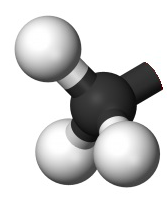
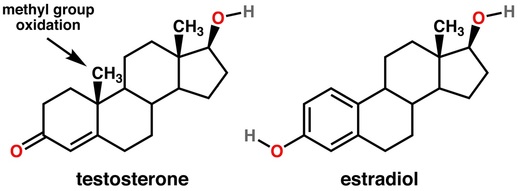
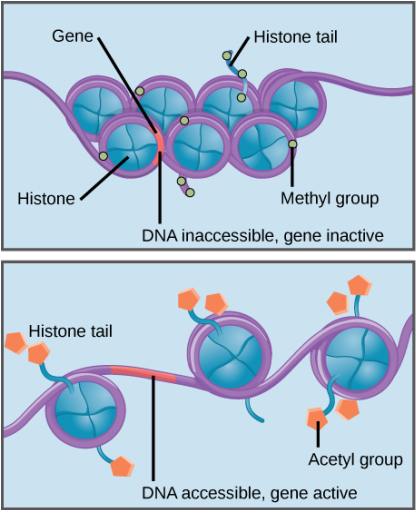
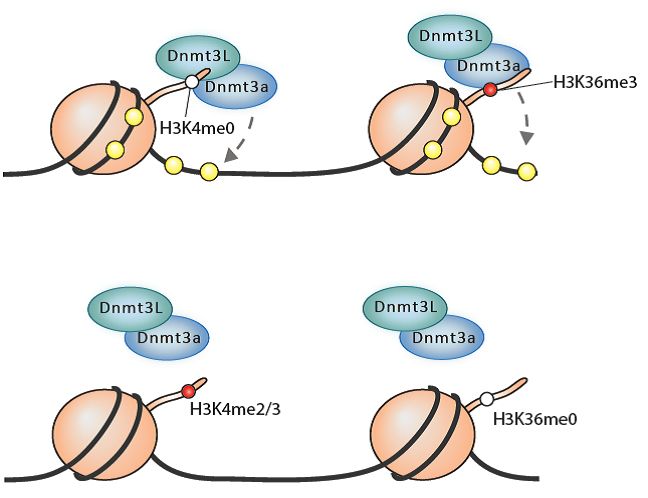
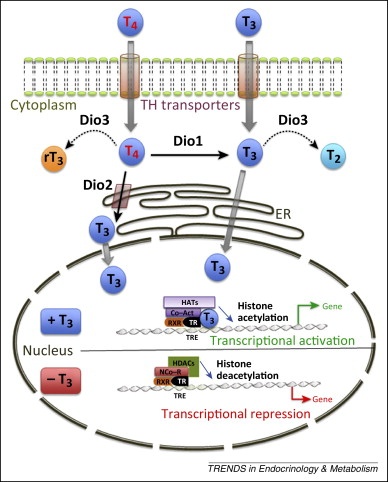
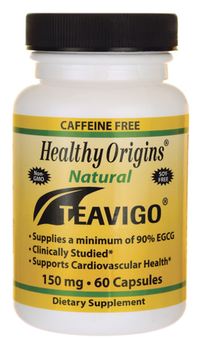


 RSS Feed
RSS Feed